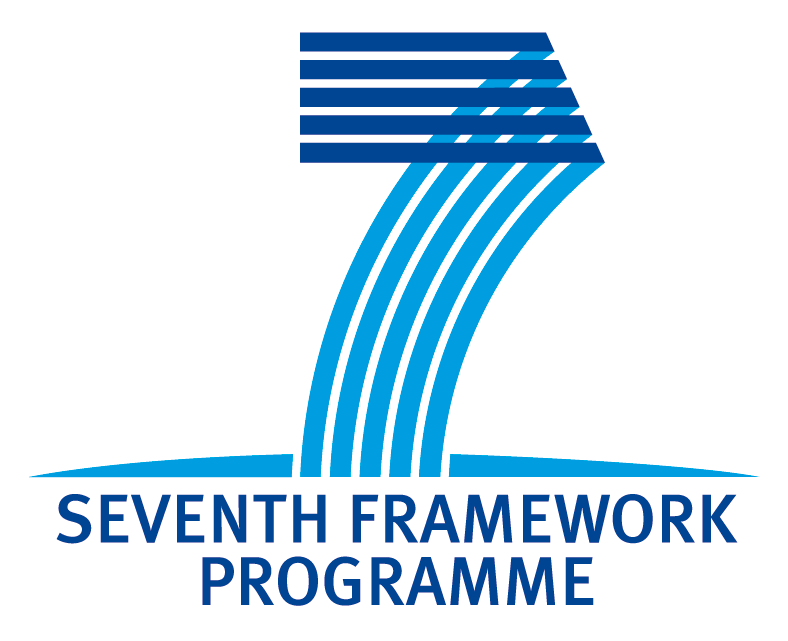Program
| May 2rd | 8.00AM | Opening of registration desk | |||
| 8.20AM | Welcome talk: Narcis Cardona, Jean-Marie Gorce | ||||
| 8.30AM-9.30AM | Invited speaker 1 | Laurent Roullet, Alcatel Lucent Bell Labs | Facing cellular networks capacity growth with small cells | ||
| 9.30AM-10.30AM | Technical session 1: Network Deployment and Performance. Chair : Silvia Ruiz | 3D performance analysis of a heterogeneous LTE network with urban femto-cells: Florian Letourneux, Yoann Corre, Erwan Suteau, Yves Lostanlen | Interference Mitigation for Dense Indoor LTE-Femtocell Deployment: Jimin Liu, Jie Zhang, Peng Wang | Green strategies for Block Diagonalization -Network MIMO with Fairness: Maximo M. Cespedes, Ana Garcia-Armada | |
| 10.30AM-11.00AM | Coffee break | ||||
| 11.00AM-12.30AM | Technical session 2: Cooperative Techniques. Chair: Alister Burr | Cognitive Interference Alignment between Small Cells and a Macrocell: Symeon Chatzinotas, Björn Ottersten | Cooperative Dense Femtocell Networks in Buildings: Jiming Chen, Jimin Liu, Peng Wang, Jie Zhang | Cooperation Scenarios in Cooperative Multiple Access Channels: Paul Ferrand, Claire Goursaud and Jean-Marie Gorce | |
| 12.20AM-2.00PM | Lunch | ||||
| 2.00PM-3.00PM | Invited speaker 2 | David Gesbert, Eurecom | Distributed Coordination over Wireless Networks: Taking a New Look at Interference | ||
| 3.00PM-4.00PM | Technical session 3: Antennas and Propagation. Chair: Claude Oestges | Empirical indoor-to-outdoor and building-to-building propagation model at 2.6 GHz: C. Fang, B. Allen, P. Karadimas, E. Liu, J. Zhang, A. Alayon Glazunov, F. Tufvesson | Spatial Cross-Correlation Modeling for Propagation Channels in Distributed Antenna Systems: Li Tian, Xuefeng Yin , Xu Zhou, and Quan Zuo | Statistical Modeling of Antenna – wall Interactions in LTE Small Cells: Xin ZENG, Alain Sibille | |
| 4.00PM-5.30PM | Demo session and coffee Break.Agora Room. Siradel, Ranplan Ltd, Wiplan, HikoB, CEA-Leti | ||||
| 8.00PM | Gala dinner at "Brasserie George" |
Invited speakers
Pr. David Gesbert
Title: Distributed Coordination over Wireless Networks: Taking a New Look at Interference
Abstract:
Pushed by the demand for bandwidth-hungry multimedia and internet-related wireless services, communication engineers seek to maximally exploit the spectral resources in all available dimensions. This results in a novel situation where interference emerges as the key limiting factor. As the many radio links sharing the resource in the network can no longer be treated as independent, the classical approach of individually optimizing communication over the point-to-point channels between a mobile and a base station, using say advanced codes, or single-link MIMO, must be revisited to offer a truly “multi-terminal” view of the network. At the core of this view, lies the notion of network coordination and cooperation which can take place between base stations, or even between the terminals themselves. Although cooperative communications was until recently much associated with the notion of relaying, this concepts is now re-inventing itself to find its way into the cellular network framework, notably as a way to deal with interference using distributed MIMO and the notion of Network Coordination. Coordination can take place is a variety of domains such as resource control, scheduling, beamforming, interference alignement, etc. and poses both new theoretical and practical challenges. Such concepts of MIMO cooperation, interference alignement and coordinated resource control have been the subject of numerous special session and journal issues in the past months. In this tutorial they will be addressed in a unifying manner. Emphasis will be put on so-called distributed approaches that let the network nodes optimize themselves for the global benefit of the network, using local information.
David Gesbert (IEEE Fellow) is Professor and Head of the Mobile Communications Department, EURECOM, France, where he also heads the Communications Theory Group. He obtained the Ph.D degree from Ecole Nationale Superieure des Telecommunications, France, in 1997. From 1997 to 1999 he has been with the Information Systems Laboratory, Stanford University. In 1999, he was a founding engineer of Iospan Wireless Inc, San Jose, Ca.,a startup company pioneering MIMO-OFDM (now Intel). Between 2001 and 2003 he has been with the Department of Informatics, University of Oslo as an adjunct professor. D. Gesbert has published about 170 papers and several patents all in the area of signal processing, communications, and wireless networks. D. Gesbert was a co-editor of several special issues on wireless networks and communications theory, for JSAC (2003, 2007, 2009), EURASIP Journal on Applied Signal Processing (2004, 2007), Wireless Communications Magazine (2006). He served on the IEEE Signal Processing for Communications Technical Committee, 2003-2008. He's an associate editor for IEEE Transactions on Wireless Communications and the EURASIP Journal on Wireless Communications and Networking. He authored or co-authored papers winning the 2004 IEEE Best Tutorial Paper Award (Communications Society) for a 2003 JSAC paper on MIMO systems, 2005 Best Paper (Young Author) Award for Signal Proc. Society journals, and the Best Paper Award for the 2004 ACM MSWiM workshop. He co-authored the book “Space time wireless communications: From parameter estimation to MIMO systems”, Cambridge Press, 2006.
Laurent Roullet, INRIA / Alcatel-Lucent
Title:Facing cellular networks capacity growth with small cells
Abstract:
With a capacity demand doubling every year, cellular networks face their own "Moore law" but with a 1 year period!This growth poses not only technical but also business and even societal challenges in terms of sustainable development to the global cellular community, from operators to vendors and academics. Based on few years experience in the Selfnet collaborative project, this talk we will cover some recent research development that can enable true cellular sustainable densification from both capacity, operational and energy perspectives.
Laurent Roullet joined Alcatel-Lucent Bell Labs France in 2009 where he is currently in charge of "Selfnet" (Self Optimized Wireless Networks) research activity inside the INRIA Alcatel-Lucent common laboratory. His current work focuses on small and macro heterogeneous networks issues related to interference cancellation and hand-over optimization techniques. With more than 10 years of research experience in mobile communication systems, Laurent ROULLET is also an expert in DVB-SH (the first heterogeneous mobile broadcasting system to be standardized) and as such exerted as ALU lead representative to the DVB Forum from 2006 to 2010. Laurent Roullet is graduated from Ecole Polytechnique (Palaiseau, 1992).








